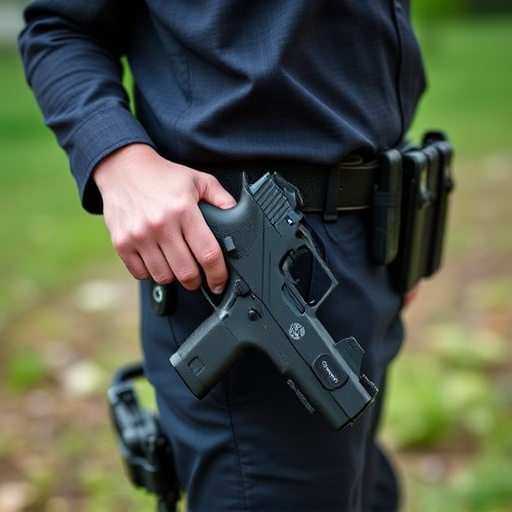Self-defense product laws worldwide vary significantly, affecting the types of weapons allowed, their use cases, and public safety measures. Key factors include distinctions between non-lethal and lethal options, open or concealed carry rules, and legal concepts like stand-your-ground laws and reasonable force usage. Understanding these laws is crucial for compliance, personal protection, and balancing individual rights with community safety. Consulting legal experts can help navigate this complex landscape. Researching local regulations regarding permitted items, carry methods, and justifiable use is essential to avoid fines or arrest while ensuring safety and legality in the possession and carrying of self-defense tools.
In today’s world, individuals increasingly turn to self-defense products for peace of mind. However, navigating the legalities surrounding these tools can be complex and confusing. This article provides an in-depth look at self-defense product laws, exploring the intricate web of regulations that govern defense gear. We delve into state-by-state differences, legal considerations for carrying self-defense tools, and essential knowledge to master before purchasing. Understanding these legal aspects is crucial for ensuring compliance and maximizing personal safety.
- Self-Defense Product Laws: An Overview of Legal Frameworks
- Understanding Defense Gear Regulations: State-by-State Differences
- Legal Considerations for Carrying Self-Defense Tools
- Navigating the Complexities: What You Need to Know Before Purchasing
Self-Defense Product Laws: An Overview of Legal Frameworks

Self-defense product laws vary significantly across jurisdictions, reflecting diverse societal views on personal protection. Understanding these legalities is crucial for individuals considering the purchase and carriage of defense gear. Key considerations include specific regulations around weapon types, permissible use, and public safety measures. For instance, some regions permit only non-lethal options like pepper spray and tasers, while others allow concealed or open carry of firearms under strict conditions.
The legal aspects of carrying defense tools also encompass issues of self-defense legal considerations, such as stand-your-ground laws and the concept of reasonableness in the use of force. These regulations aim to balance individual rights with community safety, demanding that users act reasonably and proportionately when facing threats. Navigating these defense product laws and regulations requires diligence, often involving consultation with legal experts to ensure compliance and personal protection.
Understanding Defense Gear Regulations: State-by-State Differences

Understanding Defense Gear Regulations: State-by-State Differences
When it comes to self-defense gear, the legal landscape varies significantly from state to state. Self-defense product laws and regulations are complex, with each jurisdiction having its own set of rules regarding what types of tools are permitted for personal protection. From firearms and pepper spray to stun guns and tasers, the legal considerations surrounding these defense products differ widely. States may have restrictions on which self-defense tools can be carried openly or concealed, who is eligible to purchase them, and even where they can be stored.
For instance, some states allow residents to carry concealed firearms with a permit, while others have strict bans. Similarly, regulations for less lethal options like pepper spray and stun guns vary, with certain states limiting the amount or type of substance that can be used. It’s crucial for individuals considering the purchase of any self-defense product to understand their state’s specific laws and regulations. Failure to comply with these legal aspects can lead to serious consequences, including fines and even incarceration.
Legal Considerations for Carrying Self-Defense Tools

When it comes to carrying self-defense tools, understanding the legalities involved is paramount. Each jurisdiction has its own set of self-defense product laws and defense gear regulations, which can vary widely from one place to another. These laws dictate what types of self-defense products are permitted, how they can be carried, and under what circumstances their use is justified. It’s crucial to research and understand these rules in your specific location before considering carrying any defense tools.
The legal aspects of carrying defense tools extend beyond just knowing which items are legal; they also involve understanding the procedures for open or concealed carry permits, if required, and being familiar with the rules regarding self-defense and stand-your-ground laws. Ignoring these defense product laws and regulations can result in serious consequences, including fines and even arrest. Therefore, it’s essential to stay informed and compliant to ensure your safety and avoid legal entanglements.
Navigating the Complexities: What You Need to Know Before Purchasing

Navigating the complexities of self-defense product laws is an essential step before purchasing any gear for personal protection. The legalities of defense gear vary significantly from one region to another, making it crucial to understand the specific regulations in your area. Each jurisdiction has its own set of rules and restrictions regarding which types of tools are considered lawful for self-defense, where they can be carried, and who is permitted to possess them.
Understanding these defense product regulations is critical to ensure compliance with the law and avoid potential legal consequences. Before acquiring any self-defense items, conduct thorough research or consult legal experts familiar with your local self-defense legal considerations. This proactive approach will empower you to make informed decisions while equipping yourself for personal safety, thereby fostering a sense of security within the boundaries of the law.






